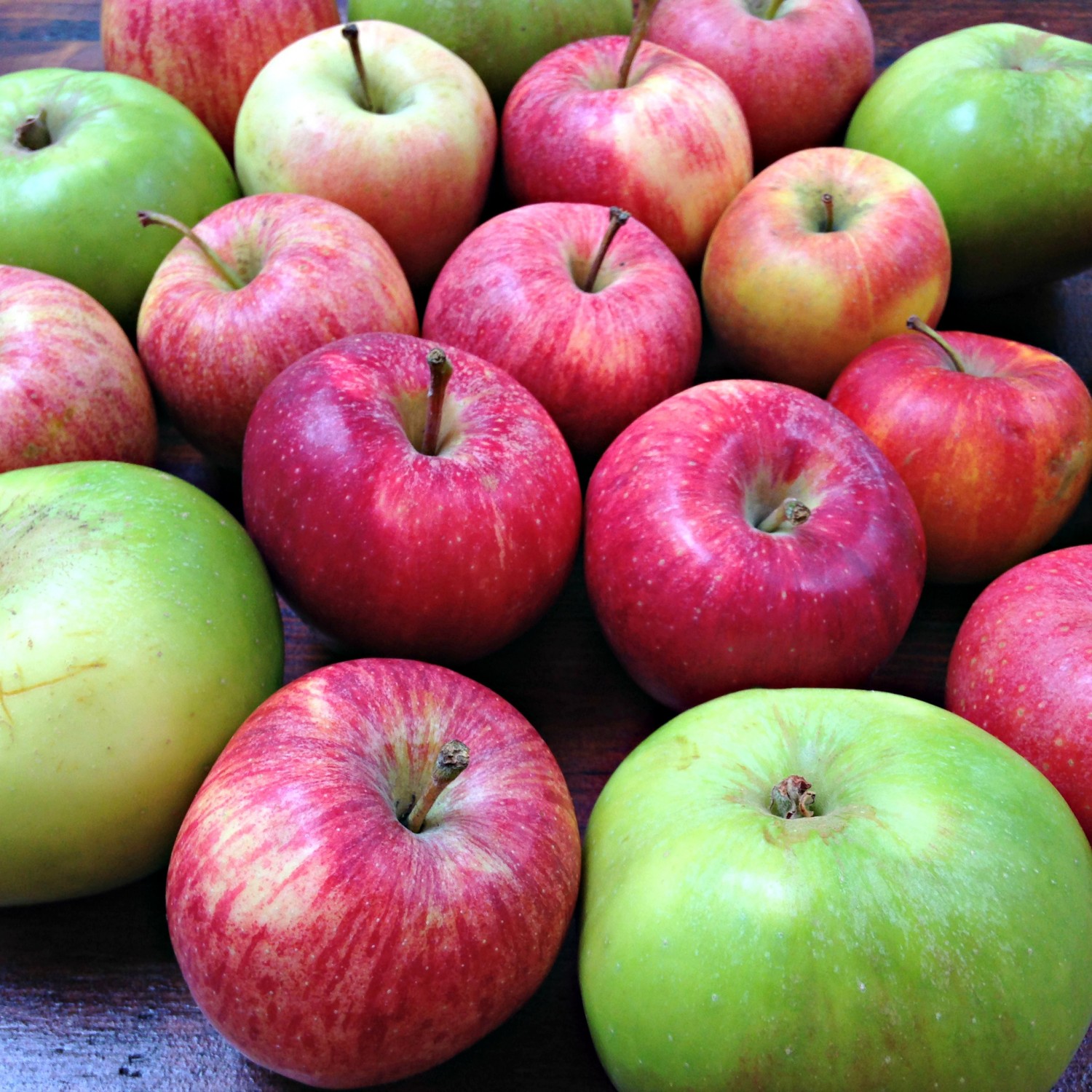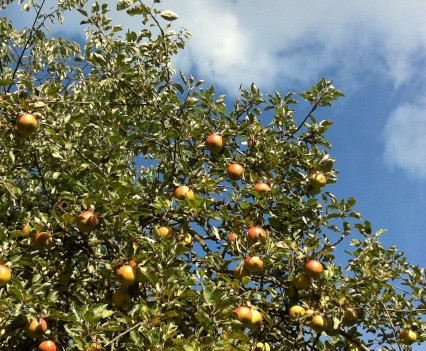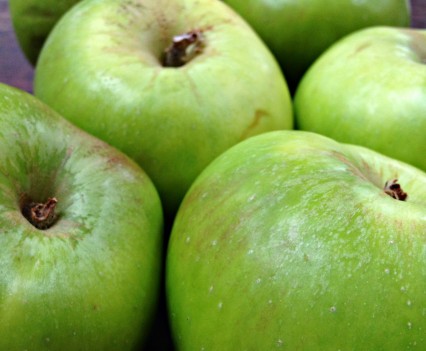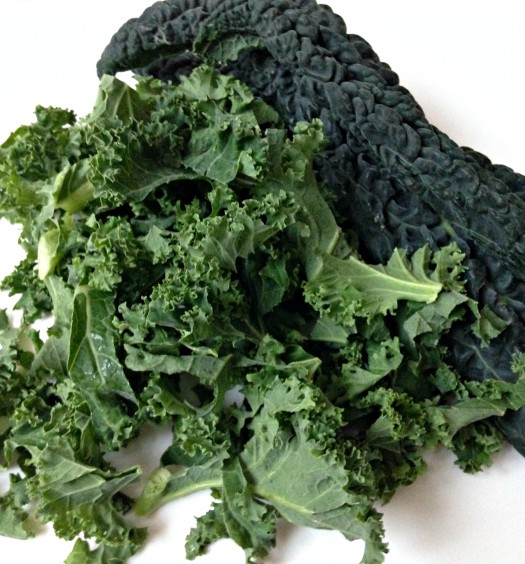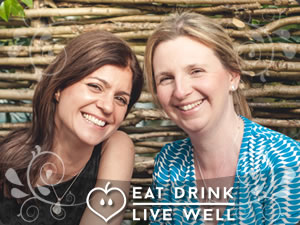Why eating an apple a day is a great idea
Whoever coined the ‘apple a day’ phrase was really onto a winner. It’s easy to get distracted by superfood powders, blueberries and broccoli yet overlook the cheap, unassuming apple, which in our opinion, warrants equal superfood status. The health benefits of apples are many – they support the digestive system, blood sugar levels and heart health. They’re cancer protective, and are our favourite anti-asthma fruit. We love apples so much (hence my ten trees in the garden!), we thought we’d highlight our favourite top health benefits here – as well as give you a simple baked apple recipe.
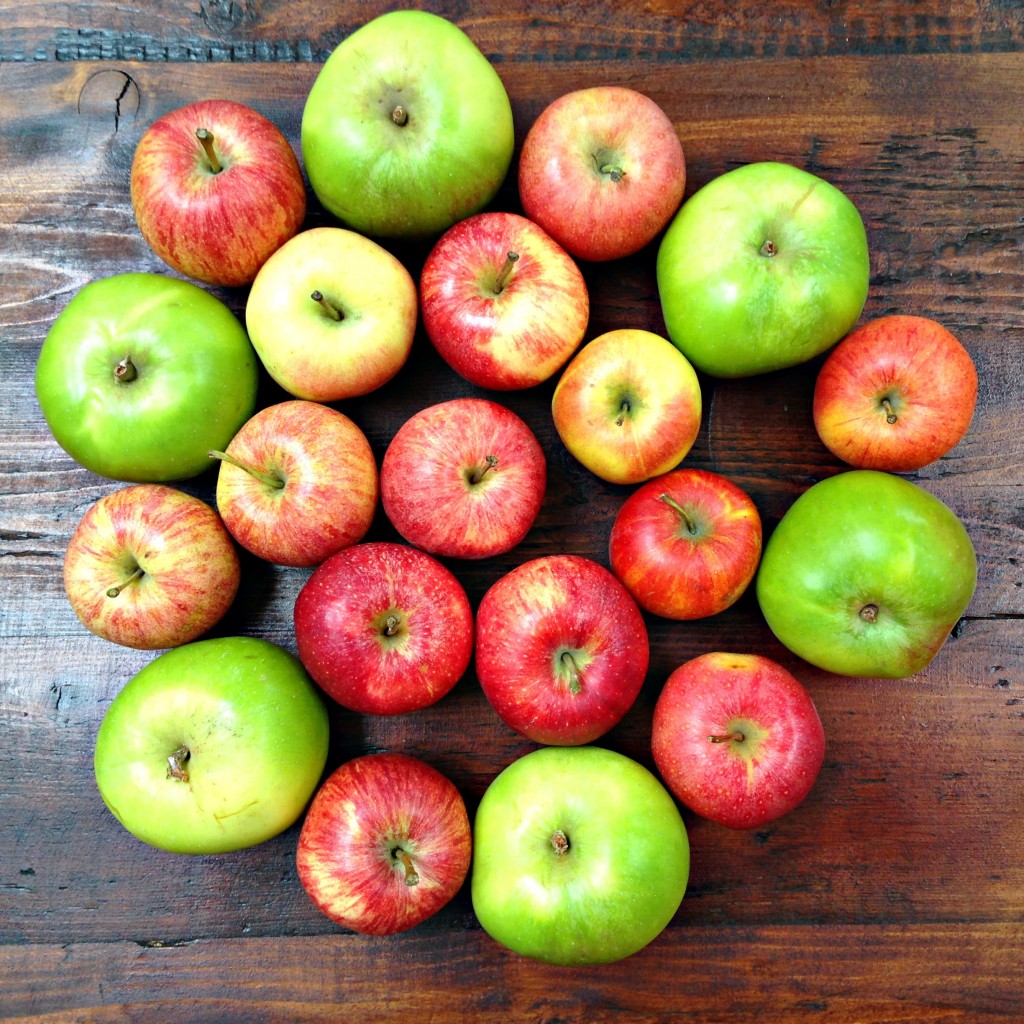 Our house is never normally bereft of apples – we keep a big bowl of them in the middle of our table to encourage us to pick one up as we walk by each day. In winter we gently stew apples, or bake them in the oven – and the recipe here is the one I grew up with as a child. When it’s cold outside, diving into a warm, fluffy baked apple, topped with a dollop of yogurt or crème fraiche is the ultimate healthy comfort food.
Our house is never normally bereft of apples – we keep a big bowl of them in the middle of our table to encourage us to pick one up as we walk by each day. In winter we gently stew apples, or bake them in the oven – and the recipe here is the one I grew up with as a child. When it’s cold outside, diving into a warm, fluffy baked apple, topped with a dollop of yogurt or crème fraiche is the ultimate healthy comfort food.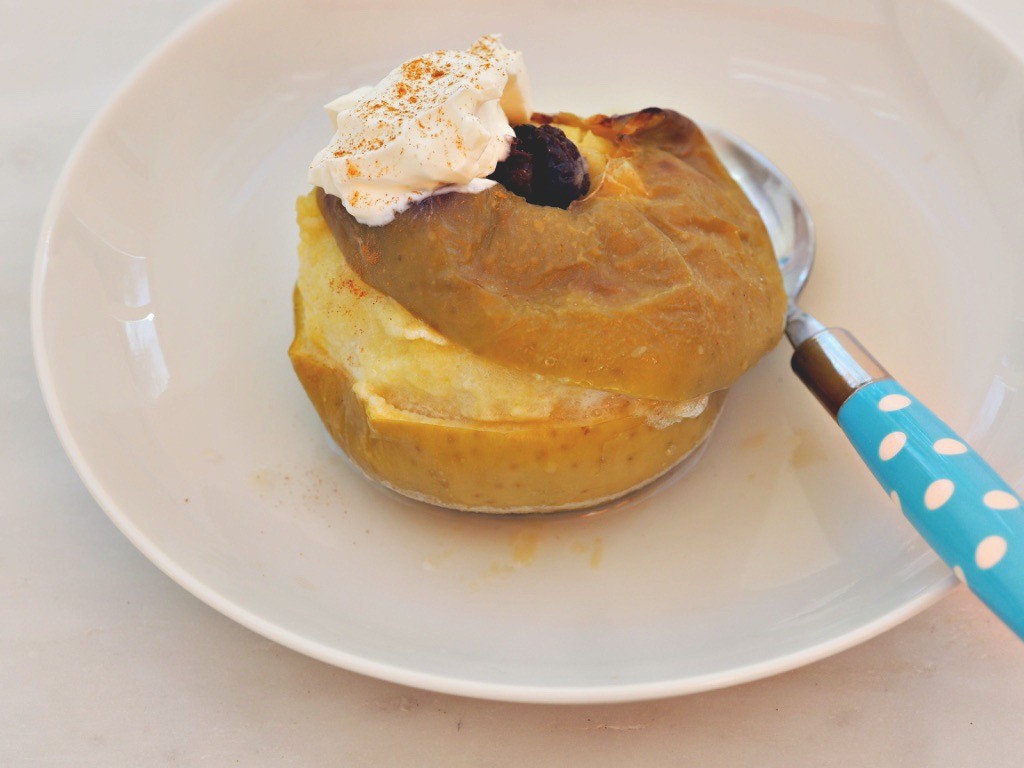
While fresh apples win out on the portability factor, cooked apples are easier to digest. So we bake or simmer slices in bulk, when they’re in plentiful supply over autumn and winter – and then freeze in small portions. Cooked apples are great for lots of different meals:
- Breakfast – in porridge, or stirred into yogurt with our homemade granola
- Snacks – as a sugar substitute in muffins
- Desserts – in crumbles
- Sunday Roast – with pork
There are so many health benefits of apples, but here are our 5 favourite reasons why an apple a day really is a great idea:
1. Anti-Asthma. Apples, particularly the skins, are high in quercitin. Quercitin acts as an antioxidant  and anti-inflammatory and can be particularly helpful in calming inflammation of the airways (e.g. upper respiratory issues), including asthma. Most fruits and veggies contain quercitin, but only a few in high enough quantities, and in foods that we eat regularly, to be of any real benefit. Apples, along with onions, are one of these high-quercitin foods – but you need to eat the skin!
and anti-inflammatory and can be particularly helpful in calming inflammation of the airways (e.g. upper respiratory issues), including asthma. Most fruits and veggies contain quercitin, but only a few in high enough quantities, and in foods that we eat regularly, to be of any real benefit. Apples, along with onions, are one of these high-quercitin foods – but you need to eat the skin!
2. Gut-Healing. Apples can be very healing to the gut, as they’re high in fibre and are one of the richest sources of the soluble fibre, pectin (which helps to add bulk to the
stool). If you’ve ever followed a detoxification programme using supplements, you’ll frequently find gut-supportive supplements containing pectin are included, as pectin helps elimination. Note that apples top the EWG’s Dirty Dozen list (they’re the fruit highest in pesticides) so if you can grow your own, or buy organic, it’s a good idea. Our one caveat on the digestive-friendly front is that apples are a high fructose fruit – so if you’re avoiding high FODMAP foods, then they’re off the list for a bit.
3. Heart-Healthy. Apples are a heart-healthy food – the combination of soluble fibre with apple
phytonutrients is a real winner, reducing oxidised cholesterol and inflammation
4. Cancer Protective. The high phytonutrient content of apples means that apples are an excellent fruit to include to help protect against cancer – particularly lung, colorectal, larynx, colorectal, oesophageal, breast, ovary, oral and prostate cancers
5. Blood Sugar Balance. The phytonutrients in apples, as well as fibre, help to regulate blood sugar levels. As an additional bonus, apples are one of a few specific fruits found to reduce risk of Type 2 Diabetes – but you need to eat them regularly!
So unless you’re following a specific FODMAP diet, or if you suffer from hayfever due to birch pollen (apples cross-react with birch) there’s very little reason not to get munching on more apples!
And if you prefer them cooked, why not try our easy baked apple recipe?
- 1 large cooking apple
- 1 dsp raisins or cranberries, dried blueberries
- 1 tsp maple syrup
- 1 cm water in cooking tray
- Score a circle in the skin around the mid-point of the apple
- Take the core out of the apple
- Place apple in small baking tin and fill with 1 cm of water
- Stuff the dried fruit in the core of the apple, and add the syrup
- Place in oven at 180°C for 45 minutes-1 hour, until the apple is tender when pierced with a knife
We hope you enjoy this blog post, let us know your thoughts in the comments below or on social media – we’re on Twitter, Facebook, Instagram and Pinterest. And don’t forget to sign up to our newsletter to receive a monthly update of our recipes, nutrition tips and expert advice.

